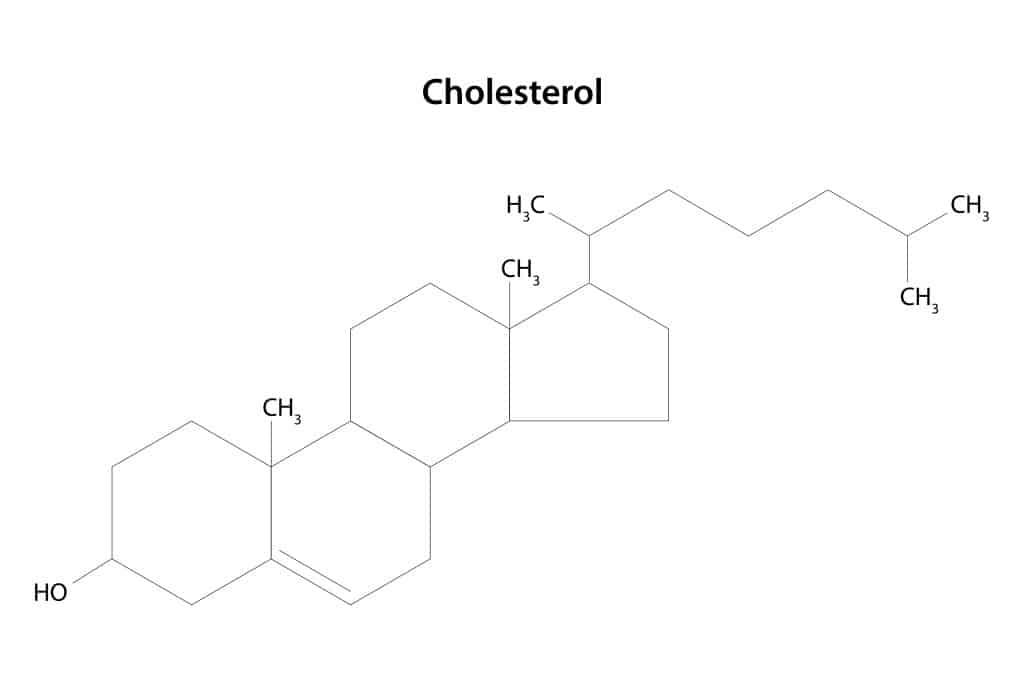Table of Contents
Introduction
In our tech-driven world, where sedentary lifestyles are rampant, “metabolic health” has emerged as a crucial concern for anyone aiming to enhance their well-being. But what exactly is metabolic health, and why is it so significant?
Metabolism involves more than just burning calories or shedding weight. It encompasses the vast network of biochemical processes that sustain life. Every moment, countless reactions are happening in your body: cells are being repaired, nutrients are assimilated, waste is expelled, and energy is produced and used. Technically, metabolism includes catabolic reactions, which break down complex molecules to generate energy, like digestion, and anabolic reactions, which use energy to build cellular components such as proteins and nucleic acids, crucial for muscle building and tissue repair.
Metabolic health refers to the optimal functioning of these processes. It is more than just energy efficiency; it includes various key metrics that, when balanced, indicate a reduced risk of metabolic syndrome—a cluster of conditions like high blood sugar, excess abdominal fat, high cholesterol, and elevated blood pressure, all of which increase the risk of heart disease, stroke, and type 2 diabetes.
Optimal metabolic health is vital for overall well-being. Poor metabolic health can quietly develop, showing no symptoms until severe health issues arise. Understanding and monitoring metabolic health is crucial due to its stealthy nature and its links to chronic diseases such as diabetes and heart disease. Modern lifestyle factors like urbanization, sedentary behaviors, processed food consumption, and stress disrupt metabolic balance.
The good news is that metabolic health can be improved. While genetics play a role, daily choices and habits significantly influence metabolic health. This means you have the power to enhance your metabolic state and overall quality of life.
In this article, we will dive deeper into what constitutes good metabolic health, signs of its decline, primary causes of its deterioration, and practical steps to optimize it. Our goal is to provide you with the knowledge and tools to make informed health decisions.
The focus on metabolic health is not a fleeting trend but a necessary response to contemporary health challenges. Understanding metabolic health is the first step in addressing and potentially reversing these challenges, paving the way for a healthier future.

Understanding Metabolic Health: A Comprehensive Guide
Metabolic health is a critical aspect of our overall well-being, far beyond merely the speed of our metabolism. It encompasses various biochemical processes essential for sustaining life, maintaining health, and preventing diseases. Let’s break down what metabolic health involves and why it’s vital.
Metabolism: The Foundation of Life
Metabolism comprises the vast network of chemical reactions that keep us alive, enabling cells to grow, reproduce, and maintain their structures. It includes:
- Catabolic Pathways: These break down molecules to produce energy, such as glycolysis, where glucose is converted into usable energy.
- Anabolic Pathways: These build molecules, like synthesizing proteins and DNA, essential for growth and repair.
Key Markers of Metabolic Health
Health professionals assess metabolic health using specific markers that reflect how efficiently our bodies perform these processes. The primary markers include:
- Blood Sugar Levels (Glucose): Optimal fasting glucose levels should be below 100 mg/dL. Insulin regulates glucose absorption, and imbalances can lead to diabetes.
- Triglycerides: Ideally, fasting triglyceride levels should be less than 150 mg/dL. High levels increase heart disease risk.
- HDL Cholesterol: Known as ‘good’ cholesterol, high HDL levels reduce heart disease and stroke risk. Recommended levels are 50 mg/dL or higher for women and 40 mg/dL or higher for men.
- Blood Pressure: Optimal blood pressure is below 120/80 mm Hg. Chronic high blood pressure can lead to serious cardiovascular diseases.
- Waist Circumference: Excess belly fat is a significant risk factor for heart disease and diabetes. A healthy measurement is less than 35 inches for women and less than 40 inches for men.
The Importance of These Markers
These markers are not random; they are critical indicators of metabolic syndrome, a cluster of conditions that increase the risk of heart disease, stroke, and type 2 diabetes. Even one marker out of range can heighten the risk of chronic conditions, but three or more significantly amplify this risk.
Taking Action for Better Metabolic Health
Understanding and monitoring these markers empower you to take proactive steps in managing your health. Regular check-ups, a balanced diet, regular exercise, and maintaining a healthy weight are essential strategies. By staying informed and vigilant, you can navigate the complex landscape of your metabolic health and enhance your overall well-being.
In the following sections, we will delve deeper into each component, providing you with the knowledge to make informed decisions and take charge of your metabolic health.
The Multifaceted Elements of Metabolic Health
Metabolic health is more than just the rate at which we burn calories; it encompasses a series of interconnected processes vital to our overall well-being. This section explores the key components of metabolic health, emphasizing their significance and impact on our physiological functions.
Blood Sugar Levels: The Energy Regulator
Energy fuels every movement, thought, and physiological process in our body, with blood sugar (glucose) being the primary source. When we consume carbohydrates, they break down into glucose, entering the bloodstream and being ushered into cells by insulin. This process provides essential fuel for cellular activities.
Maintaining balanced blood sugar is crucial. Excess glucose leads to hyperglycemia, associated with diabetes and other complications, while insufficient glucose (hypoglycemia) deprives the body of necessary energy. Optimal metabolic health is marked by fasting blood glucose levels below 100 mg/dL.
Triglycerides: The Stored Energy Reserves
Our body efficiently stores excess calories as triglycerides, a type of fat, in fat cells. These reserves are converted back into energy when needed between meals. However, consistently consuming more calories than the body can utilize results in triglyceride accumulation, increasing the risk of cardiovascular diseases. Healthy triglyceride levels in a fasting state should be below 150 mg/dL.
HDL Cholesterol: The Cardiovascular Custodian
Cholesterol has a dual nature: LDL (Low-Density Lipoprotein) can lead to arterial plaque buildup, while HDL (High-Density Lipoprotein) helps remove excess cholesterol, transporting it to the liver for disposal. HDL acts as a cleaner, preventing cholesterol blockages and reducing the risk of heart diseases and strokes. Women should maintain HDL levels of 50 mg/dL or higher, and men should aim for 40 mg/dL or higher.
Blood Pressure: The Circulatory System’s Gauge
Blood pressure measures the force of circulating blood against artery walls, providing insights into heart health. High blood pressure (hypertension) forces the heart to work harder, leading to potential heart diseases, kidney problems, and strokes. Maintaining blood pressure below 120/80 mm Hg is essential for cardiovascular health.
Waist Circumference: An Indicator of Visceral Fat
Waist circumference offers a targeted insight into metabolic health by indicating visceral fat levels, which surround vital organs like the liver, pancreas, and intestines. This type of fat releases inflammatory agents and hormones that disrupt metabolic processes. Women should aim for a waist measurement below 35 inches, and men should aim for less than 40 inches.
Each component of metabolic health is interdependent, contributing to the harmony of our overall health. Disruptions in one area can impact others, highlighting the need for a holistic approach to maintaining metabolic health. Understanding and nurturing these components are crucial for optimal well-being.
Recognizing the Warning Signs of Poor Metabolic Health
Recognizing early signs of poor metabolic health is crucial for proactive intervention. These symptoms act as alarms, indicating disruptions in metabolic balance. This guide will help you understand these symptoms and the consequences of ignoring them.
Persistent Fatigue
Persistent fatigue is a key sign of metabolic imbalance. Unlike occasional tiredness, this ongoing exhaustion hinders daily life, suggesting a malfunction in energy production.
Unexplained Weight Changes
Sudden weight gain or loss can indicate metabolic problems. Abdominal weight gain may signal insulin resistance, while unexplained weight loss might point to hyperthyroidism.
Brain Fog and Difficulty Concentrating
Metabolic imbalances, especially those affecting glucose levels, can cause cognitive issues. Difficulty concentrating, memory lapses, and persistent brain fog are common symptoms.
Elevated Blood Sugar Levels
Frequent thirst and urination often indicate high blood sugar levels. Early detection and medical consultation are essential to prevent prediabetes or type 2 diabetes.
Changes in Cholesterol Levels
High LDL cholesterol, low HDL cholesterol, or high triglycerides found in routine blood tests can signal metabolic dysfunction and increased cardiovascular risk.
Hypertension
Hypertension, the “silent killer,” often shows no symptoms. Regular blood pressure checks are vital to detect and address this condition early, preventing heart disease, kidney disease, and strokes.
Hormonal Imbalances
Metabolic health affects the endocrine system. Symptoms such as irregular menstrual cycles, erectile dysfunction, and changes in hair and skin can indicate hormonal disruptions from metabolic imbalances.
Digestive Issues
Metabolism impacts digestion. Persistent digestive problems like constipation, diarrhea, or appetite changes suggest compromised metabolic processes related to nutrient absorption.
By recognizing and addressing these symptoms early, you can take control of your metabolic health and prevent more severe complications. If you notice any of these signs, consult a healthcare professional for a thorough evaluation and appropriate intervention.

Understanding Metabolic Syndrome
Metabolic syndrome is a dangerous cluster of conditions that significantly raises the risk of heart disease, stroke, and type 2 diabetes. Diagnosing metabolic syndrome involves identifying at least three of the following warning signs:
- High blood sugar levels (often leading to diabetes)
- Excess fat around the waistline
- High triglyceride levels
- Low HDL cholesterol levels
- Elevated blood pressure
The Urgency of Vigilance
Our bodies provide crucial signals when something is wrong. These symptoms should not be ignored; they are urgent messages indicating the need for immediate intervention. When these risk factors combine, the danger multiplies, making early detection vital.
Taking Proactive Steps
Recognize that these symptoms, even when present alone, warrant further investigation. Consult with healthcare professionals, undergo necessary tests, and establish a clear health picture. Early action can dramatically change the trajectory of potential health issues.
Empowering Yourself Through Knowledge
In the following sections, we will explore the causes of poor metabolic health and provide strategies for reversing and preventing these conditions. Understanding these factors is the first step toward empowerment. Equip yourself with knowledge to build a foundation for optimal health and well-being.
Action Plan
- Monitor Symptoms: Keep track of any warning signs such as high blood sugar, waistline fat, high triglycerides, low HDL cholesterol, and high blood pressure.
- Consult Professionals: Seek medical advice and undergo recommended tests to get a comprehensive health assessment.
- Take Preventive Measures: Implement lifestyle changes such as a balanced diet, regular exercise, and stress management to reduce risks.
- Stay Informed: Continuously educate yourself about metabolic health to make informed decisions about your well-being.
Remember, understanding and action are key to preventing and managing metabolic syndrome. Take control of your health today.
Unraveling the Causes: What Leads to Poor Metabolic Health?
Understanding the roots of poor metabolic health is essential for both prevention and treatment. While genetics play a role, various external factors significantly contribute to metabolic dysfunction. By exploring these causes, we can better understand the interconnectedness of health and make informed choices for optimal well-being.
Dietary Choices and Nutrition
Modern diets, characterized by high consumption of refined sugars, saturated fats, and processed foods, are detrimental to our metabolic health.
- Excessive Sugar Intake: High sugar consumption, especially fructose in sweetened beverages and processed foods, leads to insulin resistance. Over time, this can cause elevated blood sugar levels and type 2 diabetes.
- Unbalanced Macronutrient Ratios: Diets high in unhealthy fats and simple carbs, but low in protein, disrupt cholesterol levels, increase fat storage, and lead to insulin resistance.
Physical Inactivity
Our bodies are designed for movement. Regular exercise maintains insulin sensitivity, manages weight, and optimizes metabolism. A sedentary lifestyle, however, promotes fat accumulation and hinders calorie utilization, resulting in metabolic imbalances.
Chronic Stress
Prolonged stress increases cortisol production, elevating blood sugar levels and fat storage, particularly around the abdomen. Chronic stress thus significantly impairs metabolic health.
Insufficient Sleep and Disrupted Circadian Rhythms
Metabolic processes are closely tied to our circadian rhythms. Chronic sleep deprivation or irregular patterns disrupt these rhythms, reducing insulin sensitivity, altering hunger hormones, and decreasing energy expenditure, leading to metabolic syndrome.
Genetics and Family History
Genetics can predispose individuals to metabolic imbalances. Awareness of family histories of diabetes, heart diseases, or obesity helps in understanding one’s metabolic health risks. However, lifestyle choices often play a more significant role.
Hormonal Imbalances
Hormones regulate various bodily processes, including metabolism. Conditions like polycystic ovary syndrome (PCOS), thyroid imbalances, and issues with adrenal or pituitary glands directly affect metabolic health.
Medications and Therapies
Certain medications, such as antipsychotics, antidepressants, and antihyperglycemics, impact metabolic processes. Awareness of these potential side effects is crucial for effective management of metabolic health.
Excessive Alcohol and Substance Use
Excessive alcohol intake leads to liver issues, affecting the metabolism of fats and sugars. Some substances also disrupt hormonal balances, impacting appetite, sleep, and overall metabolism.
Environmental Toxins
Exposure to specific environmental toxins, known as “obesogens,” can interfere with metabolic processes. These toxins, found in pesticides, certain plastics, and industrial chemicals, may promote obesity and disrupt normal metabolism.
Understanding and Intervention: A Dual Approach
Recognizing the diverse causes of poor metabolic health is the first step towards effective intervention. While genetics are beyond our control, many factors can be influenced by lifestyle changes and proactive health management. Understanding these causes empowers individuals to make informed choices, shaping their metabolic health for a healthier future.
Action Plan for Enhancing Metabolic Health
In the following sections, we’ll explore actionable strategies to enhance metabolic health, reverse imbalances, and cultivate vitality and well-being.
The Road to Recovery: Reversing Poor Metabolic Health
Reversing poor metabolic health is not instantaneous, but it’s achievable with determination and the right approach. Here are comprehensive, actionable steps to restore and maintain metabolic balance:
Adopt a Balanced Diet
Prioritize Whole Foods
Choose nutrient-dense foods like vegetables, fruits, lean proteins, whole grains, and healthy fats. These foods provide essential vitamins and minerals, avoiding the added sugars and preservatives that worsen metabolic issues.
Limit Refined Sugars and Carbs
Reduce intake of sugary drinks, candies, and baked goods. Instead, choose complex carbohydrates like quinoa, oats, and legumes, which release glucose gradually, providing sustained energy and stable blood sugar levels.
Stay Hydrated
Water is crucial for metabolic processes. Maintain consistent hydration throughout the day for optimal metabolic function.
Commit to Regular Physical Activity
Incorporate Cardiovascular Exercise
Activities like walking, jogging, cycling, or swimming boost heart health, improve insulin sensitivity, and aid in weight management.
Strength Training
Building muscle mass increases resting metabolic rate, allowing your body to burn more calories even at rest. Include resistance training exercises, using weights or resistance bands, at least twice a week.
Flexibility and Balance
Yoga or pilates can enhance flexibility, preventing injuries and improving overall functional fitness.
Manage Stress
Mindfulness and Meditation
Daily mindfulness practices or meditation can significantly reduce cortisol levels, promoting a sense of balance.
Engage in Enjoyable Activities
Participating in hobbies or activities you love can distract from stressors and release endorphins, the body’s natural stress-relievers.
Prioritize Restful Sleep
Establish a Routine
Consistent sleep and wake times, even on weekends, stabilize your internal clock.
Optimize Your Sleep Environment
A dark, quiet, and cool environment promotes better sleep. Use blackout curtains, earplugs, or white noise machines if needed.
Limit Screen Time
Blue light from phones, tablets, and computers disrupts melatonin production, essential for sleep. Limit screen time at least an hour before bed.
Limit or Eliminate Toxins
Limit Alcohol Consumption
Moderate alcohol consumption, up to one drink a day for women and two for men, to reduce metabolic strain.
Reduce Exposure to Environmental Toxins
Choose organic produce when possible, use BPA-free plastics, and opt for natural household cleaners.
Seek Professional Guidance
Consult Healthcare Professionals
Regular check-ups, screenings, and consultations with doctors or registered dietitians provide personalized guidance.
Consider Therapy or Counseling
Therapy can offer tools and strategies to cope with emotional or psychological factors affecting metabolic health.
By following these steps diligently, you can work towards reversing poor metabolic health and achieving lasting wellness.

Holistic Approach to Reversing Poor Metabolic Health
Reversing poor metabolic health requires a holistic strategy addressing diet, physical activity, mental well-being, sleep, and environmental factors. Viewing metabolic health through a comprehensive lens helps tackle specific issues and fosters overall well-being, enhancing every aspect of life. Though the journey may be challenging, dedication yields rewards such as improved health, vitality, and longevity.
Lifelong Commitment to Optimal Metabolic Health
Achieving optimal metabolic health is just the beginning; maintaining it is the true challenge. Life circumstances, aging, and societal influences necessitate ongoing commitment. This section outlines strategies for sustained metabolic well-being.
- Continuous Nutritional Awareness
- Diversify Your Diet: Incorporate a variety of whole foods to ensure a broad spectrum of nutrients, supporting gut health, immune function, and metabolic efficiency.
- Adjust for Life Stages: Nutritional needs change with age, pregnancy, or health conditions. Periodically reevaluate and adjust your diet accordingly.
- Stay Informed: Keep up with evolving nutritional science. Consult nutritionists or dietitians for personalized advice.
- Adaptive Physical Activity
- Age-Appropriate Exercise: High-intensity workouts may suit your 20s and 30s, but gentler exercises like swimming or tai chi might be better as you age.
- Stay Active Despite Challenges: Adapt exercises to your physical condition, ensuring you remain active within your capacity.
- Variety in Workouts: Combine strength, flexibility, aerobic, and balance exercises to maintain comprehensive fitness.
- Emotional and Mental Well-Being
- Build Resilience: Develop coping mechanisms through mindfulness, therapy, or support communities to handle life’s challenges without compromising metabolic health.
- Stay Connected: Maintain relationships and engage in community activities to combat loneliness and its adverse health impacts.
- Lifelong Learning: Keep your brain active with new languages, skills, or hobbies, contributing positively to mental well-being and metabolic health.
- Regular Health Monitoring
- Periodic Screenings: Regularly check cholesterol, blood sugar, blood pressure, and other metabolic markers for early detection and intervention.
- Family Health History: Awareness of family health patterns can help manage potential risks proactively.
- Collaborate with Health Professionals: View healthcare professionals as partners in your health journey, consulting them regularly for a clear health trajectory and actionable insights.
- Environmental Considerations
- Minimize Toxin Exposure: Choose organic produce, filter tap water, and opt for natural skincare products to reduce toxin exposure.
- Ergonomics in Daily Life: Use ergonomic furniture, take breaks from prolonged sitting, and ensure proper lighting to support long-term metabolic health.
- Stay Nature-Connected: Regular exposure to nature through activities like walks, gardening, or hikes offers mental relaxation and physical benefits.
- Commitment to Self-Education
- Seek Reliable Sources: Discern genuine health information from myths by relying on reputable medical institutions, peer-reviewed studies, and expert opinions.
- Stay Updated: Regularly update your knowledge to ensure informed and contemporary health choices.
- Share Knowledge: Educate friends and family, benefiting them and reinforcing your understanding and commitment to metabolic health.

A Lifelong Odyssey
Optimal metabolic health isn’t about rigid rules; it’s about embracing a flexible, informed, and holistic approach to well-being. Life is full of challenges and changes, but with knowledge, adaptability, and a proactive mindset, you can maintain your metabolic health as a reliable companion on your life’s journey.
Beyond the Individual: The Societal Impact of Metabolic Health
Metabolic health, while personal, has far-reaching societal impacts. It influences healthcare costs, workplace productivity, community vitality, and national health statistics. Here’s a deeper look into these broader implications:
Economic Implications
- Healthcare Costs: Poor metabolic health often requires frequent medical interventions, leading to significant financial burdens on healthcare systems. Preventive measures and widespread education can curb these escalating costs.
- Workplace Productivity: Poor metabolic health leads to fatigue, decreased concentration, and increased sick days, impacting productivity. Organizations prioritizing employee metabolic health see enhanced productivity and reduced absenteeism.
Social and Cultural Perspectives
- Dietary Habits: Traditional diets rooted in cultural practices are often balanced and beneficial for metabolic health. Embracing these practices can improve health outcomes.
- Social Stigmas: Conditions like obesity or diabetes can carry stigmas in some cultures. Breaking these stigmas and fostering understanding is essential for holistic societal health.
- Community Programs: Initiatives like community gardens, group exercise sessions, or nutritional workshops promote metabolic health and foster community bonding.
Public Health Initiatives
- Awareness Campaigns: Governments and non-profits can drive mass awareness about metabolic health, emphasizing its importance and providing resources for improvement.
- Regulatory Measures: Policies such as sugar taxes or stricter labeling requirements can guide healthier choices and ensure industries prioritize consumers’ metabolic health.
- Infrastructure Development: Creating pedestrian-friendly zones, public parks, and fitness facilities encourages physical activity and promotes metabolic health.
Environmental Connections
- Access to Fresh Foods: Urban planning that prioritizes accessible fresh produce markets or supports local farmers ensures more people have access to foods that bolster metabolic health.
- Pollution and Metabolic Health: Reducing exposure to environmental pollutants benefits both planetary and individual health.
The Future Landscape: Education and Youth
- School Programs: Incorporating metabolic health education in school curriculums lays a foundation for lifelong health. Promoting physical education and nutritious school meals sets children on a path to optimal metabolic health.
- Youth Campaigns: Engaging youth through targeted campaigns, apps, or community initiatives ensures the next generation is proactive in maintaining their metabolic health.
By understanding and addressing the multifaceted aspects of metabolic health, we can foster healthier individuals and stronger communities.
Conclusion
Achieving optimal metabolic health is essential for overall wellbeing and disease prevention. It involves the body efficiently processing energy, maintaining stable blood sugar levels, and effectively regulating lipid profiles. Central to this is maintaining a healthy body weight through balanced nutrition and regular physical activity.
A diet rich in whole foods, including fruits, vegetables, lean proteins, and whole grains, while minimizing processed foods, sugars, and unhealthy fats, is fundamental to supporting metabolic health. Regular exercise enhances insulin sensitivity, promotes fat loss, and boosts cardiovascular health.
Beyond diet and exercise, other lifestyle factors like sleep, stress management, and avoiding harmful habits such as smoking are critical for optimizing metabolic health. Adequate sleep is vital for hormonal regulation, including insulin and leptin, which are crucial for metabolism and appetite control. Stress management techniques such as mindfulness, meditation, and relaxation exercises can counteract the negative effects of chronic stress on metabolic health.
Maintaining a healthy gut microbiome through dietary fiber and probiotic-rich foods supports digestion, nutrient absorption, and immune function. Hydration is also essential for metabolic processes, as water aids in nutrient transport, waste removal, and thermoregulation.
Regular monitoring of metabolic markers such as blood glucose levels, lipid profiles, blood pressure, and waist circumference helps individuals assess their metabolic health and make necessary lifestyle adjustments. Consulting with healthcare professionals, including registered dietitians, physicians, and exercise physiologists, can provide personalized guidance and support.
In summary, optimal metabolic health requires a holistic approach encompassing balanced nutrition, regular physical activity, sufficient sleep, stress management, and other healthy lifestyle habits. By prioritizing these factors, individuals can support their metabolism, reduce the risk of metabolic disorders like obesity, type 2 diabetes, and cardiovascular disease, and improve overall health and wellbeing.
Metabolic health, while starting as an individual journey, becomes a collective endeavor. Every stakeholder, from individuals to governments, plays a role in this intricate tapestry. By recognizing the broader implications and interconnections, societies can work towards a future where metabolic health is not just a personal goal but a shared vision for collective wellbeing.
Take action now: explore our semaglutide pricing today and commit to maintaining your metabolic health!
Research Citations
Here are some research citations discussing optimal metabolic health:
- Mozaffarian D, Katan MB, Ascherio A, Stampfer MJ, Willett WC. Trans fatty acids and cardiovascular disease. N Engl J Med. 2006;354(15):1601-1613. doi:10.1056/NEJMra054035
- Eckel RH, Grundy SM, Zimmet PZ. The metabolic syndrome. Lancet. 2005;365(9468):1415-1428. doi:10.1016/S0140-6736(05)66378-7
- Després JP. Obesity and cardiovascular disease: weight loss is not the only target. Can J Cardiol. 2015;31(2):216-222. doi:10.1016/j.cjca.2014.12.019
- Johnson RJ, Andrews P, Benner SA, Oliver W. Theodore E. Woodward award. The evolution of obesity: insights from the mid-Miocene. Trans Am Clin Climatol Assoc. 2010;121:295-305.
- O’Neill S, O’Driscoll L. Metabolic syndrome: a closer look at the growing epidemic and its associated pathologies. Obes Rev. 2015;16(1):1-12. doi:10.1111/obr.12229
- Astrup A, Finer N. Redefining type 2 diabetes: ‘diabesity’ or ‘obesity dependent diabetes mellitus’? Obes Rev. 2000;1(2):57-59. doi:10.1046/j.1467-789x.2000.00009.x
- Eckel RH, Kahn SE, Ferrannini E, et al. Obesity and type 2 diabetes: what can be unified and what needs to be individualized? J Clin Endocrinol Metab. 2011;96(6):1654-1663. doi:10.1210/jc.2011-0585
- Olshansky SJ, Passaro DJ, Hershow RC, et al. A potential decline in life expectancy in the United States in the 21st century. N Engl J Med. 2005;352(11):1138-1145. doi:10.1056/NEJMsr043743
- DeFronzo RA, Ferrannini E, Groop L, et al. Type 2 diabetes mellitus. Nat Rev Dis Primers. 2015;1:15019. doi:10.1038/nrdp.2015.19
- Haslam DW, James WP. Obesity. Lancet. 2005;366(9492):1197-1209. doi:10.1016/S0140-6736(05)67483-1
These studies provide insights into the complexities of metabolic health, including its associations with cardiovascular disease, obesity, diabetes, and other related pathologies, as well as the importance of individualized approaches to management and prevention.
Questions and Answers: Optimal Metabolic Health
Metabolic health refers to the state of having ideal levels of blood sugar, triglycerides, high-density lipoprotein (HDL) cholesterol, blood pressure, and waist circumference, without requiring medications. It’s about how well your body processes and uses energy from food.
Metabolic health is crucial because it impacts your overall health. Poor metabolic health is associated with an increased risk of chronic diseases like type 2 diabetes, heart disease, and stroke. Optimizing your metabolic health can improve your energy levels, cognitive function, and overall quality of life.
To determine if your metabolism is healthy, you should consider factors such as your blood sugar levels, blood pressure, cholesterol levels, triglyceride levels, and waist circumference. Ideally, these should all fall within healthy ranges. Also, lack of symptoms like fatigue, weight gain, and high blood sugar can indicate good metabolic health.
Signs of poor metabolic health include high blood sugar levels, increased waist circumference, high triglycerides, low HDL cholesterol levels, and high blood pressure. Symptoms may also include fatigue, difficulty concentrating, and excessive thirst or hunger.
Yes, you can improve your metabolic health through lifestyle changes. This includes eating a balanced diet rich in whole foods, engaging in regular physical activity, maintaining a healthy weight, managing stress, getting adequate sleep, and avoiding smoking and excessive alcohol consumption.
A diet best for metabolic health is rich in whole foods like fruits, vegetables, lean proteins, whole grains, and healthy fats. It should be low in processed foods, refined sugars, and unhealthy fats. Portion control and balanced meals that include protein, fiber, and healthy fats can also help.
Exercise is a key component in maintaining and improving metabolic health. It helps regulate blood sugar levels, improves insulin sensitivity, helps in weight management, reduces blood pressure, and improves cholesterol levels. A combination of aerobic and resistance training is often recommended.
Adequate sleep is vital for metabolic health. Poor sleep can lead to hormonal imbalances that affect hunger and appetite, increase the risk for obesity and diabetes, and can negatively impact insulin sensitivity. Adults should aim for 7-9 hours of quality sleep per night.
Long-term effects of poor metabolic health include a higher risk of developing chronic conditions such as type 2 diabetes, cardiovascular diseases, stroke, and certain types of cancer. It can also impact mental health, leading to issues such as depression and anxiety.
Yes, genetics can play a role in metabolic health. Some people may be genetically predisposed to certain conditions like diabetes or high cholesterol. However, lifestyle factors have a significant impact, and many aspects of poor metabolic health can be improved or mitigated through lifestyle changes.

Dr. Judith Germaine
Dr. Jude (Germaine-Munoz) Germaine, MD is a family physician in Springfield, New Jersey. She is currently licensed to practice medicine in New Jersey, New York, and Florida. She is affiliated with Saint Josephs Wayne Hospital.
